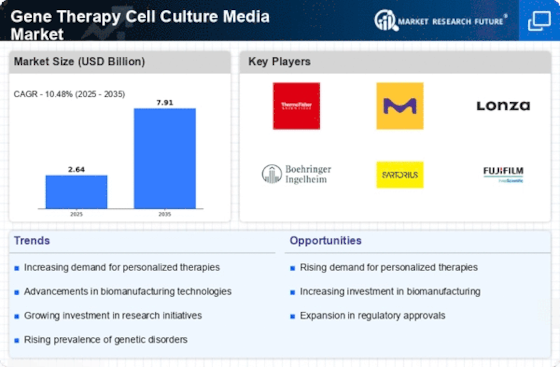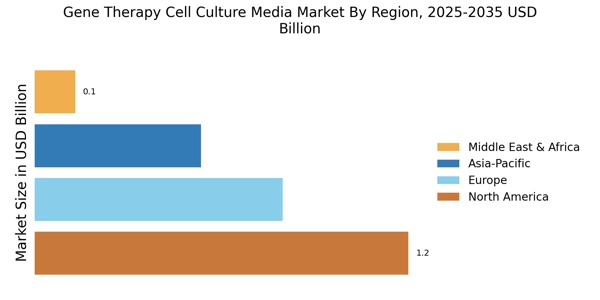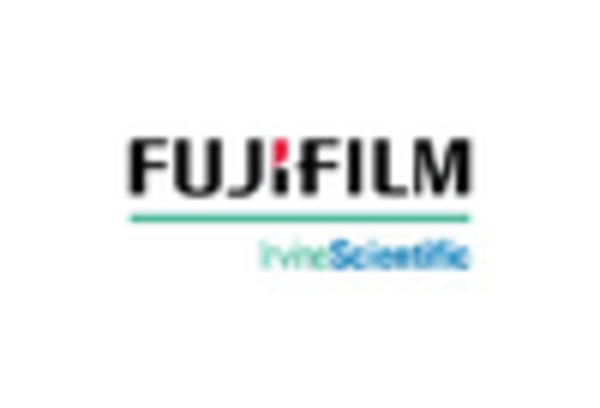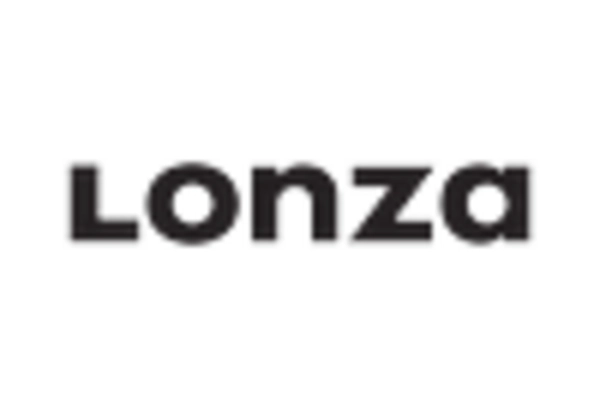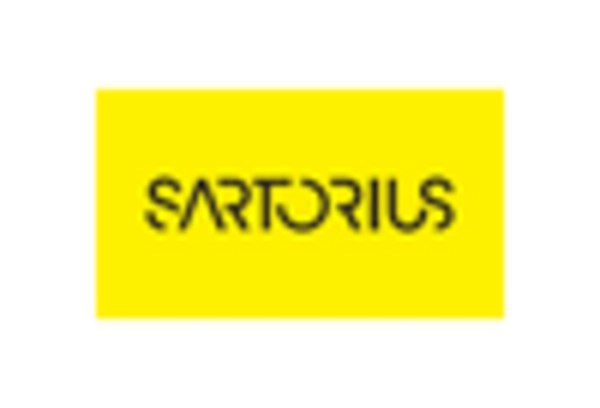Growing Investment in Biotechnology
The surge in investment within the biotechnology sector is a significant driver for the Gene Therapy Cell Culture Media Market. Venture capital and private equity funding have increasingly flowed into biotech firms focusing on gene therapies, reflecting a strong belief in the potential of these treatments. Market analysis indicates that funding for biotech startups has reached record levels, enabling them to develop advanced cell culture media solutions. This influx of capital not only accelerates research but also enhances the capabilities of existing media products. Consequently, the Gene Therapy Cell Culture Media Market is poised for growth as innovative solutions emerge to meet the evolving needs of gene therapy developers.
Regulatory Support for Gene Therapies
Regulatory bodies are increasingly supportive of gene therapy initiatives, which serves as a catalyst for the Gene Therapy Cell Culture Media Market. Recent approvals of gene therapies by agencies such as the FDA and EMA have paved the way for more products to enter the market. This regulatory environment encourages investment in research and development, as companies are more confident in pursuing gene therapy projects. The market data reflects a surge in clinical trials and product approvals, indicating a favorable landscape for gene therapy innovations. As a result, the demand for high-quality cell culture media tailored for gene therapy applications is expected to rise.
Rising Prevalence of Genetic Disorders
The increasing incidence of genetic disorders is a primary driver for the Gene Therapy Cell Culture Media Market. As more individuals are diagnosed with conditions such as cystic fibrosis, hemophilia, and muscular dystrophy, the demand for effective gene therapies rises. This trend is supported by data indicating that genetic disorders affect millions worldwide, necessitating innovative treatment solutions. Consequently, the need for specialized cell culture media that can support the development and production of gene therapies is expected to grow. The Gene Therapy Cell Culture Media Market is likely to see substantial investment as pharmaceutical companies and research institutions seek to address these pressing health challenges.
Advancements in Biopharmaceutical Research
The Gene Therapy Cell Culture Media Market is significantly influenced by advancements in biopharmaceutical research. As researchers explore novel gene editing techniques, such as CRISPR and TALEN, the requirement for optimized cell culture media becomes critical. These advancements facilitate the development of more effective gene therapies, which in turn drives the demand for specialized media formulations. Market data suggests that the biopharmaceutical sector is projected to expand, with investments in research and development reaching unprecedented levels. This growth indicates a robust future for the Gene Therapy Cell Culture Media Market, as companies strive to innovate and enhance therapeutic efficacy.
Increased Collaboration Between Academia and Industry
The collaboration between academic institutions and industry players is fostering innovation within the Gene Therapy Cell Culture Media Market. These partnerships facilitate the exchange of knowledge and resources, leading to the development of cutting-edge cell culture media tailored for gene therapy applications. Data suggests that such collaborations have increased significantly, resulting in a more dynamic research environment. This synergy not only enhances the quality of research but also accelerates the translation of scientific discoveries into practical applications. As a result, the Gene Therapy Cell Culture Media Market is likely to benefit from a continuous influx of innovative products and solutions that address the specific needs of gene therapy.


